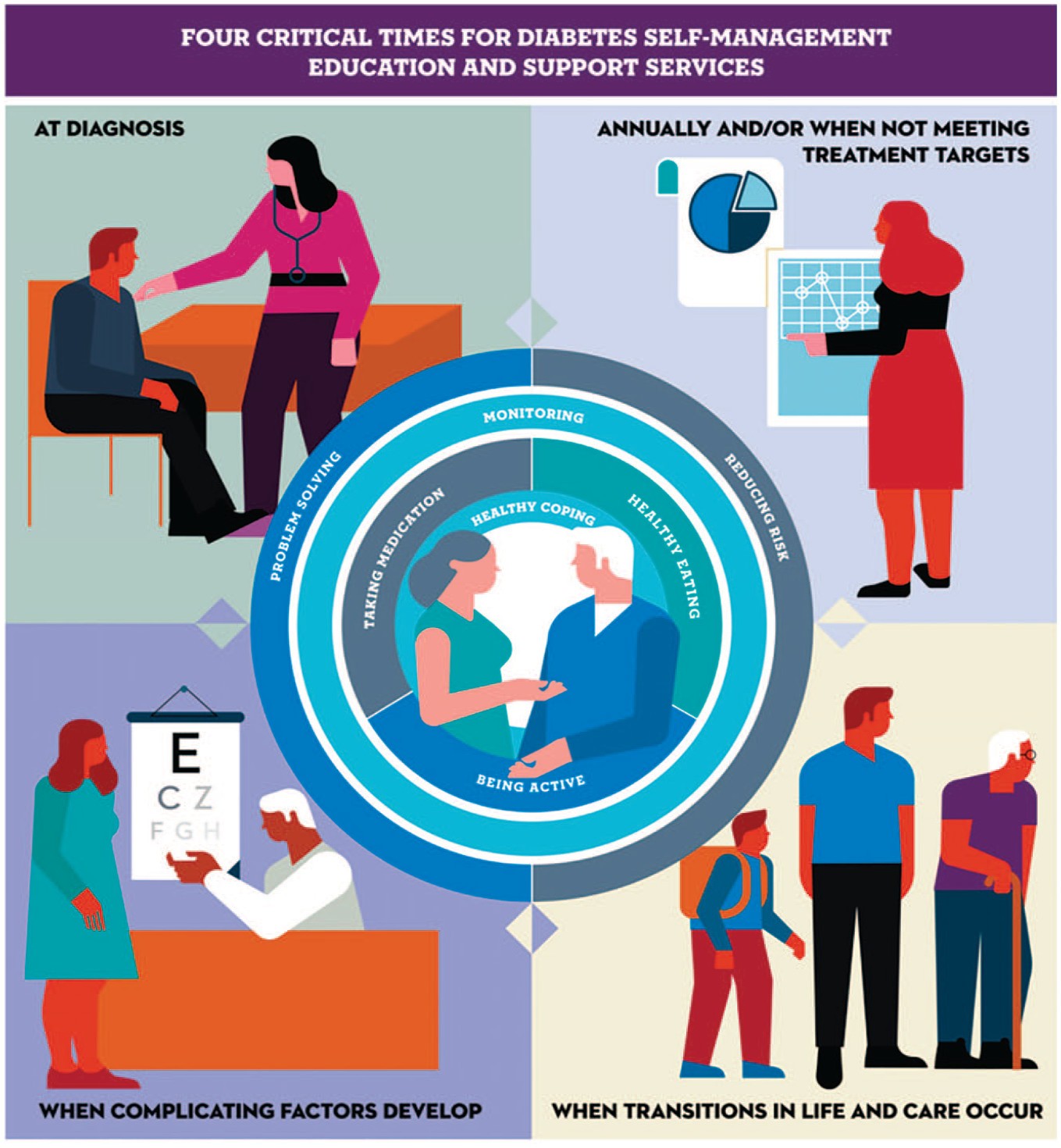Diabetes can lead to kidney damage if not managed properly. Early detection, healthy lifestyle changes, and professional guidance are essential in preventing complications and protecting your kidneys.
Heald Membership: Your Path to Diabetes Reversal
Table of content
Introduction
Diabetes is a chronic condition that affects millions of people worldwide. It is characterized by high blood sugar levels and can lead to severe complications if not managed properly. One of the most concerning complications is kidney damage, also known as diabetic nephropathy. Early detection and management are crucial to prevent irreversible damage to the kidneys. In this blog, we will explore the relationship between diabetes and kidney health, the importance of early detection, and how lifestyle changes, weight loss, and professional guidance can aid in diabetes reversal and protect your kidneys.
So, let’s get started.
Understanding the Connection
Diabetes affects the kidneys' ability to filter waste from the blood. The kidneys contain millions of tiny blood vessels (glomeruli) that filter waste products and excess fluids from the blood to form urine. Over time, high blood sugar levels associated with diabetes can cause damage to these blood vessels, leading to nephropathy, a form of kidney disease. When the blood vessels are damaged, the kidneys lose their filtering capability, allowing proteins such as albumin to leak into the urine, a condition known as albuminuria.
According to a study published in the "New England Journal of Medicine," about 30% of people with Type 1 diabetes and 10-40% of those with Type 2 diabetes eventually develop kidney disease. This damage is often gradual, occurring over many years. Initially, the kidneys may become more efficient at filtering blood, a phase called hyperfiltration. However, this is followed by a decline in kidney function as damage progresses.
The development of diabetic nephropathy is influenced by various factors, including the duration of diabetes, control of blood sugar levels, blood pressure, genetic predisposition, and the presence of other complications such as hypertension and obesity. High blood pressure is particularly detrimental as it can accelerate kidney damage by increasing the pressure in the glomeruli, further impairing their function.
Early stages of kidney disease may not present any symptoms, making regular monitoring crucial for early detection. As kidney function deteriorates, waste products build up in the blood, leading to symptoms such as swelling (edema), fatigue, nausea, and changes in urination patterns. If left untreated, diabetic nephropathy can progress to end-stage renal disease (ESRD), requiring dialysis or kidney transplantation for survival.
The importance of controlling blood sugar levels to prevent kidney damage cannot be overstated. Studies have shown that intensive blood sugar management can significantly reduce the risk of developing diabetic nephropathy. Additionally, managing blood pressure through lifestyle changes and medications, avoiding smoking, and maintaining a healthy weight are essential strategies in protecting kidney health.
Furthermore, advancements in medical research have led to the development of new medications, such as SGLT2 inhibitors, which have been shown to provide renal protection in patients with diabetes. These medications help lower blood sugar levels and reduce the risk of kidney disease progression by promoting glucose excretion in the urine and reducing glomerular hyperfiltration.
Symptoms of Diabetic Nephropathy
Diabetic nephropathy develops slowly, and early stages often have no symptoms. As the disease progresses, symptoms may include:
Swelling: In the legs, ankles, feet, and hands due to fluid retention. Fluid retention occurs because the kidneys' ability to filter and excrete excess fluid is compromised, leading to an accumulation of fluid in the body's tissues.
Increased Need to Urinate: Frequent urination, especially at night. The kidneys' filtering units, called glomeruli, become damaged, leading to an increased need to expel fluids and waste, resulting in more frequent urination.
Fatigue and Weakness: Due to the kidneys' decreased ability to filter waste. Accumulation of toxins in the blood can cause tiredness and weakness as the kidneys fail to efficiently remove waste products from the bloodstream.
Nausea and Vomiting: Resulting from the buildup of toxins in the body. The accumulation of waste products in the blood (uremia) can irritate the gastrointestinal tract, leading to symptoms like nausea and vomiting.
Loss of Appetite: Often linked to nausea and other metabolic disturbances. Increased levels of waste products in the blood can interfere with digestive processes and appetite regulation, leading to decreased interest in eating.
The Importance of Early Detection
Early detection of kidney damage can significantly slow the progression of the disease. Regular screening for kidney function is essential for people with diabetes. Tests such as urine albumin-to-creatinine ratio (UACR) and estimated glomerular filtration rate (eGFR) can help detect early signs of kidney damage.
Urine Albumin-to-Creatinine Ratio (UACR): Measures the amount of albumin (a type of protein) in the urine, which can indicate kidney damage if levels are elevated. Elevated albumin levels in urine are a sign that the kidneys' filtering capacity is impaired, allowing protein to leak into the urine.
Estimated Glomerular Filtration Rate (eGFR): Estimates how well the kidneys are filtering blood, with lower values indicating reduced kidney function. eGFR is calculated using blood creatinine levels, age, gender, and body size. It provides an estimate of how well the kidneys are filtering blood and helps identify the stage of kidney disease.
Lifestyle Changes for Diabetes Reversal
Nutrition
A balanced diet plays a crucial role in managing diabetes and preventing kidney damage. Consuming a diet rich in vegetables, fruits, lean proteins, and whole grains can help maintain blood sugar levels. Avoiding processed foods, sugary drinks, and high-sodium foods is also essential.
Vegetables and Fruits: High in fiber and antioxidants, which help in reducing blood sugar levels. Fiber helps slow down the absorption of sugar into the bloodstream, preventing spikes in blood glucose levels. Antioxidants combat oxidative stress, which can damage cells, including those in the kidneys.
Lean Proteins: Such as chicken, fish, beans, and legumes, which support muscle health without adding excessive fat. Lean proteins provide essential amino acids needed for body functions without the additional saturated fats found in some animal proteins, helping to manage cholesterol levels and reduce the risk of cardiovascular complications.
Whole Grains: Like brown rice, quinoa, and oats, which have a low glycemic index and help in maintaining stable blood sugar levels. Whole grains are digested more slowly than refined grains, leading to more gradual increases in blood sugar and providing sustained energy throughout the day.
HealD's personalized nutrition plans, designed by expert nutritionists, can guide you in making healthier food choices that support kidney health.
Weight Loss
Maintaining a healthy weight is vital for diabetes management and kidney health. Excess weight can increase the risk of developing Type 2 diabetes and exacerbate kidney damage. Research has shown that weight loss can improve blood sugar control and reduce the risk of complications.
Modest Weight Loss: Even a modest weight loss of 5-10% of body weight can lead to significant health improvements, including better blood sugar control and reduced kidney strain. Losing even a small amount of weight can enhance insulin sensitivity, lower blood pressure, and reduce the workload on the kidneys, thereby mitigating the risk of further damage.
Sustainable Practices: Focus on sustainable weight loss practices such as regular physical activity and healthy eating habits. Sustainable weight loss practices are those that can be maintained long-term without drastic measures, ensuring lasting health benefits and minimizing the likelihood of weight regain.
A study in the "Diabetes Care" journal highlighted that even modest weight loss can lead to significant health improvements.
Physical Activity
Regular physical activity helps control blood sugar levels, reduce weight, and improve overall health. Activities such as walking, cycling, swimming, and strength training can be beneficial.
Aerobic Exercise: Helps improve cardiovascular health and insulin sensitivity. Aerobic exercises, such as brisk walking or swimming, increase heart rate and breathing, improving the body's ability to use insulin and manage blood sugar levels.
Strength Training: Builds muscle mass, which helps in burning more calories and improving metabolism. Strength training exercises, such as weight lifting or resistance band workouts, increase muscle mass, which can enhance metabolic rate and improve glucose uptake by muscles.
The HealD app provides tailored exercise plans and tracks your progress, making it easier to stay active and motivated.
Role of Professional Guidance
Diabetes Coach
Working with a diabetes coach can provide personalized support and guidance in managing diabetes. A coach can help you set realistic goals, monitor your progress, and make necessary adjustments to your lifestyle. HealD offers access to experienced diabetes coaches who can assist you in your journey towards better health.
Goal Setting: Helps in setting achievable and realistic goals for weight loss and blood sugar control. A diabetes coach helps you set specific, measurable, attainable, relevant, and time-bound (SMART) goals, which can make managing diabetes more manageable and effective.
Regular Monitoring: Provides continuous feedback and support to ensure adherence to the management plan. Regular check-ins with a coach help track your progress, address challenges, and adjust your plan as needed, ensuring you stay on track and motivated.
Behavioral Psychologist
Managing diabetes is not just about physical health; it also involves mental and emotional well-being. Behavioral psychologists can help you develop coping strategies, address emotional eating, and manage stress, all of which can impact blood sugar levels.
Emotional Eating: Techniques to manage cravings and emotional triggers. Behavioral psychologists can help identify the emotional triggers that lead to unhealthy eating habits and develop strategies to manage cravings and stress without resorting to food.
Stress Management: Practices such as mindfulness and relaxation techniques to reduce stress-induced blood sugar spikes. Techniques such as deep breathing exercises, progressive muscle relaxation, and mindfulness meditation can help reduce stress, which in turn helps stabilize blood sugar levels.
HealD integrates behavioral psychology into its diabetes reversal program to ensure a holistic approach to health.
AI Technology
Artificial intelligence (AI) can revolutionize diabetes management by providing real-time feedback and personalized recommendations. The HealD app uses AI to analyze data from your diet, activity levels, and glucose readings, offering insights and suggestions to help you stay on track.
Data Analysis: Continuous analysis of health data to provide tailored recommendations. AI algorithms analyze patterns in your health data, such as blood sugar readings, dietary intake, and activity levels, to provide personalized feedback and suggestions for improvement.
Real-Time Feedback: Immediate feedback on lifestyle choices to help maintain optimal blood sugar levels. The app provides instant alerts and recommendations based on your current data, helping you make informed decisions in real-time to better manage your diabetes.
Common Life Problems and Solutions
Problem: Managing Diet and Cravings
Solution: Plan your meals ahead of time and incorporate healthy snacks. Use the HealD app to log your meals and receive feedback on your choices.
Meal Planning: Reduces the likelihood of unhealthy eating by having pre-planned meals. Planning meals in advance helps ensure that you have healthy options available and reduces the temptation to opt for quick, unhealthy choices.
Healthy Snacks: Keeps you full and prevents sugar cravings. Incorporating snacks like fruits, nuts, and yogurt can help maintain energy levels and prevent unhealthy snacking.
Problem: Staying Motivated to Exercise
Solution: Set achievable goals and track your progress. Join a fitness group or find a workout buddy. HealD's activity tracker can help you stay motivated by showing your daily and weekly progress.
Set Small Goals: Helps in maintaining motivation by achieving small, incremental goals. Breaking down larger fitness goals into smaller, manageable tasks can make the process less daunting and more achievable.
Social Support: Increases accountability and motivation. Exercising with friends or joining a fitness group can provide social support, making it easier to stick to your exercise routine.
Problem: Stress and Emotional Eating
Solution: Practice mindfulness and stress-reduction techniques such as yoga and meditation. Consult with a behavioral psychologist to develop healthier coping mechanisms.
Mindfulness Practices: Helps in staying focused and reducing stress. Techniques such as mindfulness meditation, yoga, and deep breathing exercises can help manage stress levels and reduce the likelihood of emotional eating.
Behavioral Therapy: Provides tools to manage emotional triggers and develop healthier habits. Working with a behavioral psychologist can help identify the underlying causes of emotional eating and develop strategies to cope with stress and emotions in healthier ways.
Real-Life Example
John, a 45-year-old with Type 2 diabetes, struggled with managing his blood sugar levels and experienced early signs of kidney damage. He joined HealD's diabetes reversal program and worked closely with a diabetes coach and a nutritionist. By making dietary changes, increasing physical activity, and addressing emotional eating with the help of a behavioral psychologist, John was able to reverse his diabetes and improve his kidney function. Regular monitoring and AI-powered insights from the HealD app kept him motivated and on track.
Research Evidence
A study published in the "Journal of Diabetes Research" emphasized the importance of a multidisciplinary approach in managing diabetes and preventing complications. The study found that integrating lifestyle changes, weight loss, and professional guidance led to significant improvements in blood sugar control and kidney health.

Multidisciplinary Approach: Combining diet, exercise, behavioral support, and AI technology for comprehensive diabetes management. This approach addresses multiple aspects of diabetes care, ensuring a more holistic and effective management strategy.
Significant Improvements: Participants experienced better glycemic control and reduced risk of complications. The study demonstrated that individuals who followed a multidisciplinary approach had better health outcomes, including improved blood sugar levels and kidney function.
Conclusion
Diabetes and kidney health are closely intertwined, and early detection of kidney damage is crucial in preventing serious complications. By adopting a healthy lifestyle, losing weight, and seeking professional guidance, you can manage your diabetes effectively and protect your kidneys. HealD offers a comprehensive diabetes reversal program that includes personalized nutrition plans, tailored exercise routines, behavioral psychology support, and AI technology to help you achieve your health goals.
Don't wait until it's too late. Take charge of your health today. Book an appointment with one of our expert doctors at HealD and start your journey towards diabetes reversal and kidney health.

Sandeep Misra is the Co-Founder and Chief Growth Officer at Heald, where he leads growth strategy and partnerships for data-driven programs focused on diabetes reversal and metabolic health. He brings over two decades of experience across healthcare technology, population health, and enterprise partnerships, having held senior leadership roles at AWS, Rackspace, and NTT Data.
Popular Blogs
Comments









